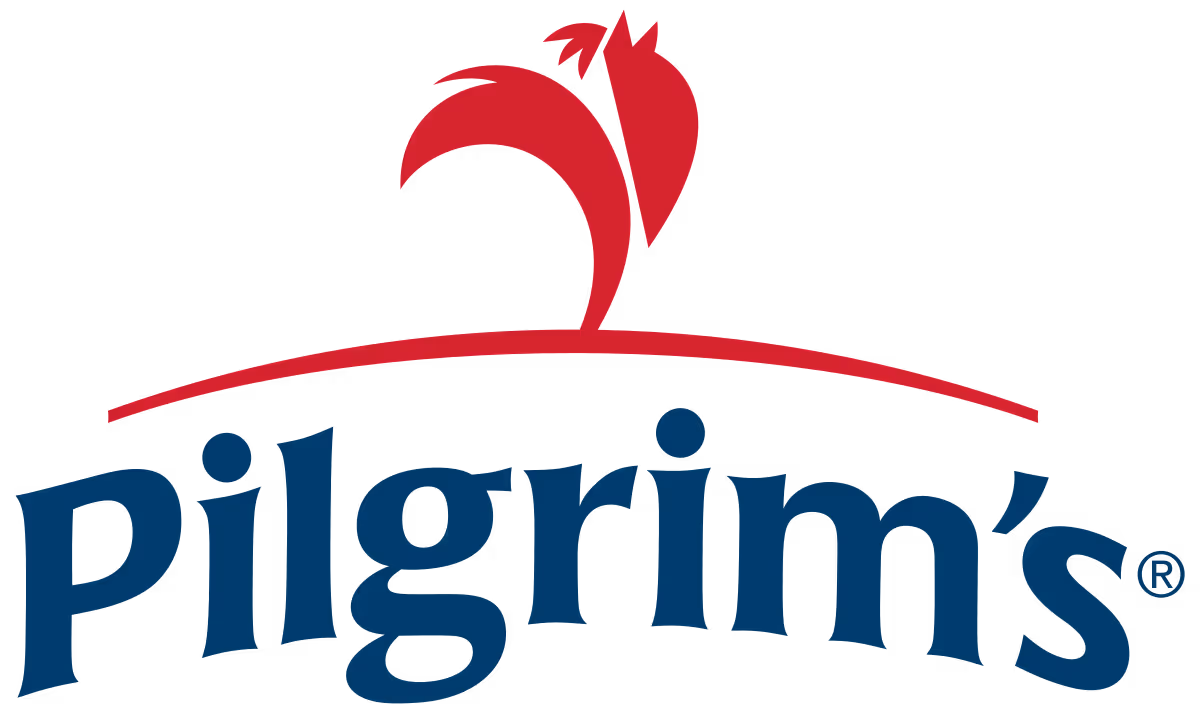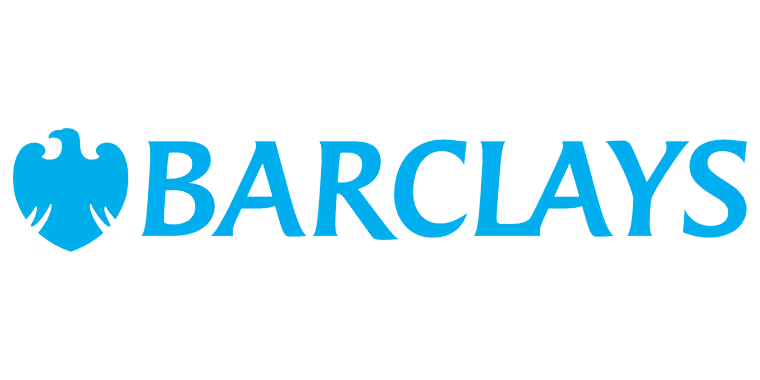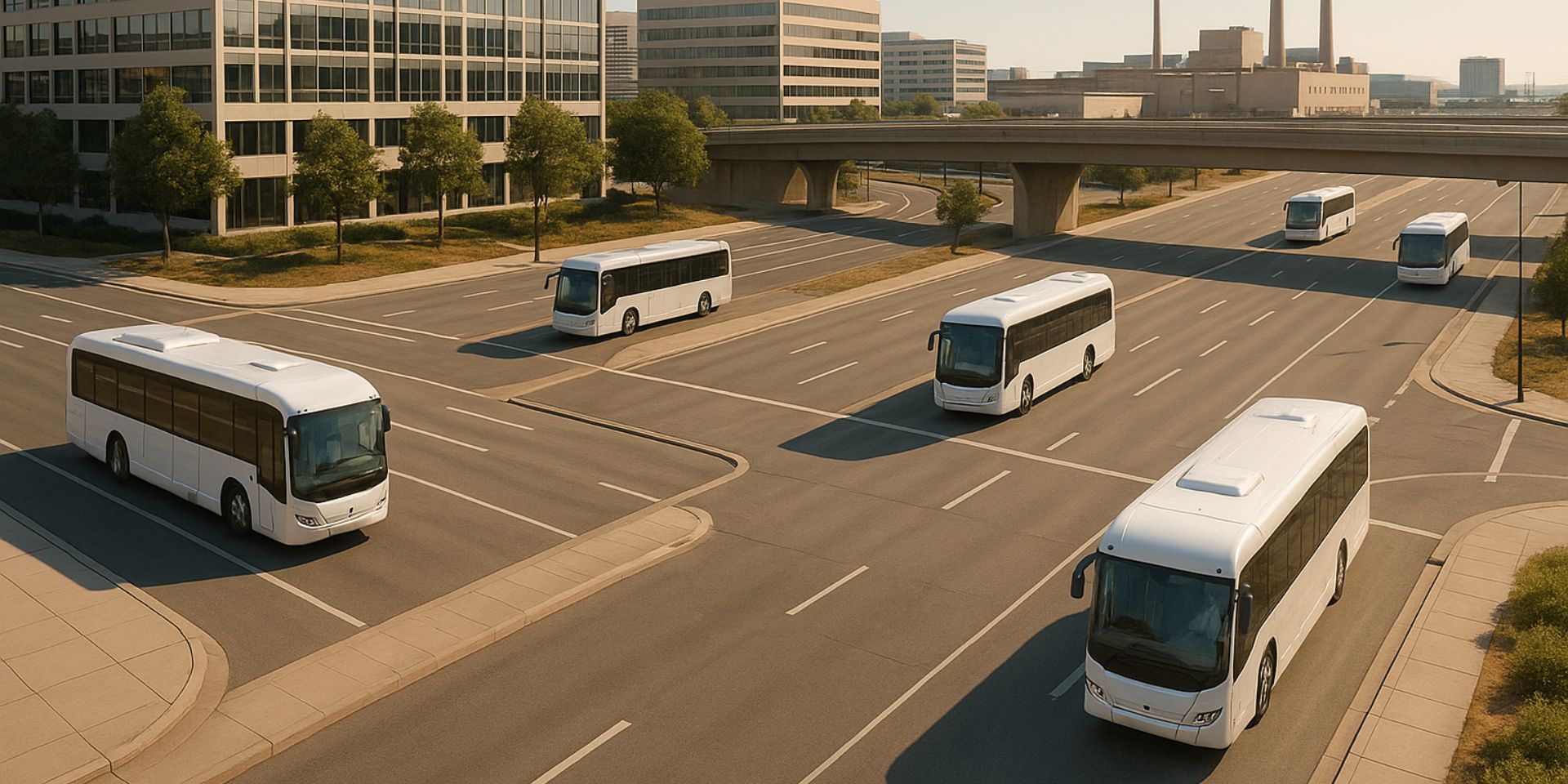Enterprise Solutions for Shuttle-Based Employee Transport
.avif)
Companies that prioritize safe and reliable transportation options are benefiting their employees and the environment in a multitude of ways. By offering alternatives to personal vehicles, such as carpooling, shuttle services, or public transit subsidies, companies can help alleviate parking shortages and reduce traffic congestion in surrounding areas. This, in turn, can lead to improved community relationships and a better quality of life for local residents.
Furthermore, accessible transportation options can create greater opportunities for employee diversity and inclusion. This is especially important for those who may not have access to personal vehicles or live in areas with limited transportation options. By offering alternative transportation options, companies can ensure that their workforce is more diverse and representative of the community they serve.
In addition to these social benefits, providing alternative transportation options can also have significant environmental benefits. By reducing the number of single-occupancy vehicles on the road, companies can help reduce greenhouse gas emissions and improve air quality. Encouraging the use of electric vehicles can further accelerate this transition towards a more sustainable future.
Addressing Procurement and Management Challenges
While the potential benefits of shuttle-based employee transportation programs are very significant, procuring and managing them can be a complex and challenging process. One of the main difficulties is the wide variation in the quality and pricing of bus operators across different providers, locations, and over time. It can be difficult for companies to know whether they are getting value for their money. Selecting the lowest cost option risks quality, but a high price doesn’t guarantee quality. Transportation involves risk and liability exposure that must be actively managed as part of the procurement process, further complicating the decision-making process.
Another challenge in the procurement of employee transportation is the difficulty of leveraging national or regional scope to achieve economies of scale. The supplier base is highly fragmented, and local competition varies significantly, making it hard to achieve consistency and efficiency. This lack of standardization can also make it challenging to compare and evaluate different providers and services.
Organizationally, local business or facility teams are often ill-equipped to effectively procure or manage employee transportation, lacking the necessary expertise, data, or resources. But because business needs are urgent, they are reluctant to defer to a central procurement department. As a result, maverick spending is a common and serious problem in this spending category, resulting in spending leakage, poor service quality, and increased liability exposure. Finding a balance between local autonomy and central control is crucial to ensuring that procurement decisions are made in the best interest of the company as a whole, while also meeting the needs of individual business units.
Shuttle-Based Employee Transportation Procurement and Management Made Easy
To effectively tackle the challenges of procuring and managing employee transportation, a two-pronged approach is necessary, addressing the priorities of both corporate management and local operations teams. Centralizing the procurement function is essential to achieving economies of scale and effectively managing risk. This can be accomplished by establishing a specialized group with advanced sourcing techniques, such as score-based vendor evaluation and strategic sourcing approaches. The group should also establish a risk-adjusted cost baseline that includes the direct expense of ground transportation as well as the hidden organizational costs of managing and operating transportation networks.
Adopting a Cost Per Rider (CPR) perspective is superior to simplistic cost-per-route metrics, as it drives overall service performance. A bus route that costs 25% more but caters to 50% more employees may well be the better choice! By prioritizing cost per rider, companies can ensure that they are getting the most value for their money while also meeting the needs of their employees.
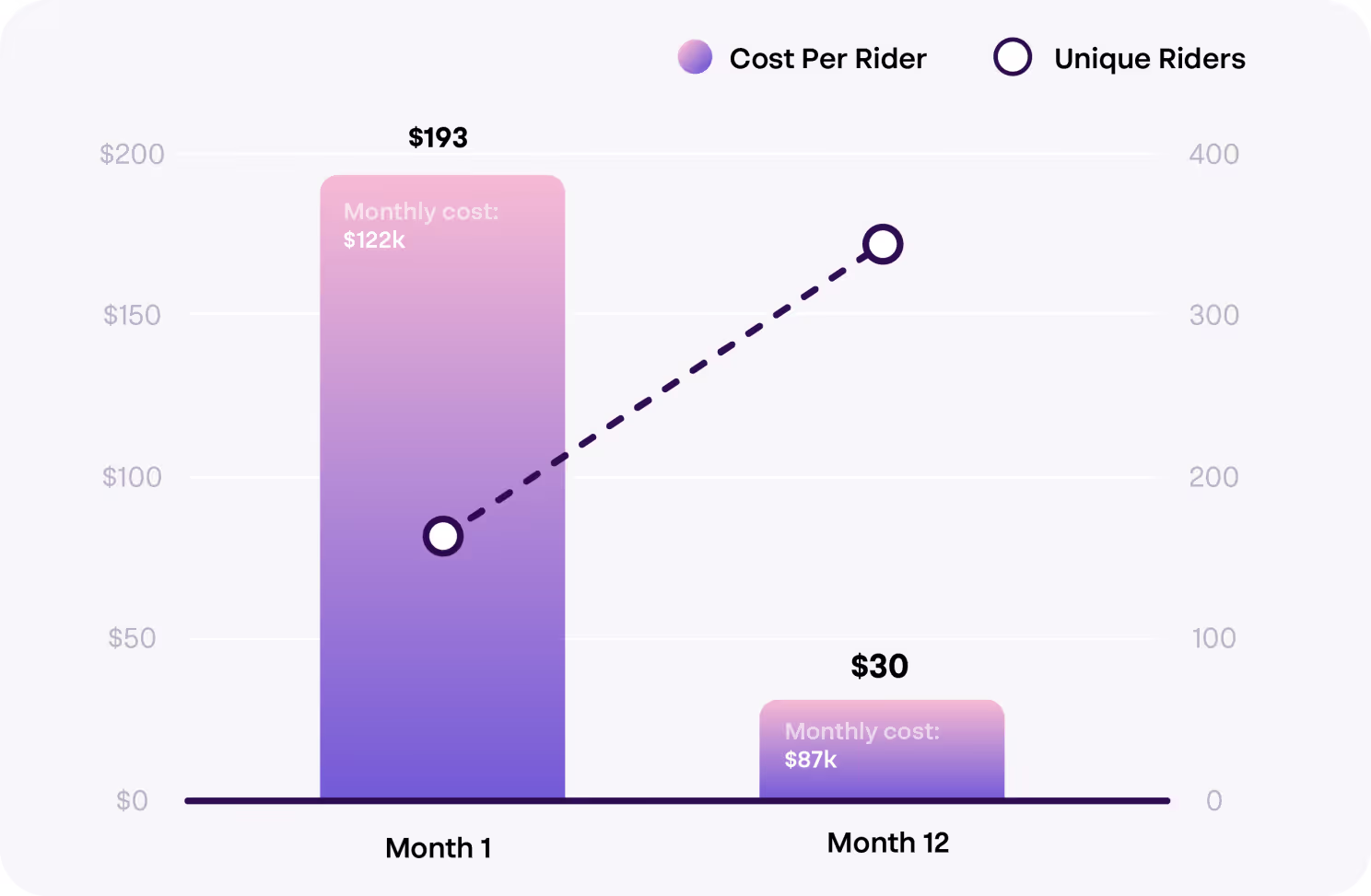
For local operations teams, the key to success is optimal service network design and rapid deployment, as well as state-of-the-art management of bus operations. By leveraging technologies such as apps with tracking, booking, and fare collection functionality, companies can dramatically improve the employee experience while also eliminating unnecessary inquiries and local administrative overhead. Real-time safety monitoring can support driver safety and training programs, reducing risk and associated insurance costs.
When local operations teams have a reliable source for rapidly deployed, high-quality transportation services, user acceptance is assured, and spending is reigned in. By providing a comprehensive, centralized solution to employee transportation, companies can achieve the operational efficiencies, HR objectives, sustainability, and social responsibility benefits that make these programs so viable.
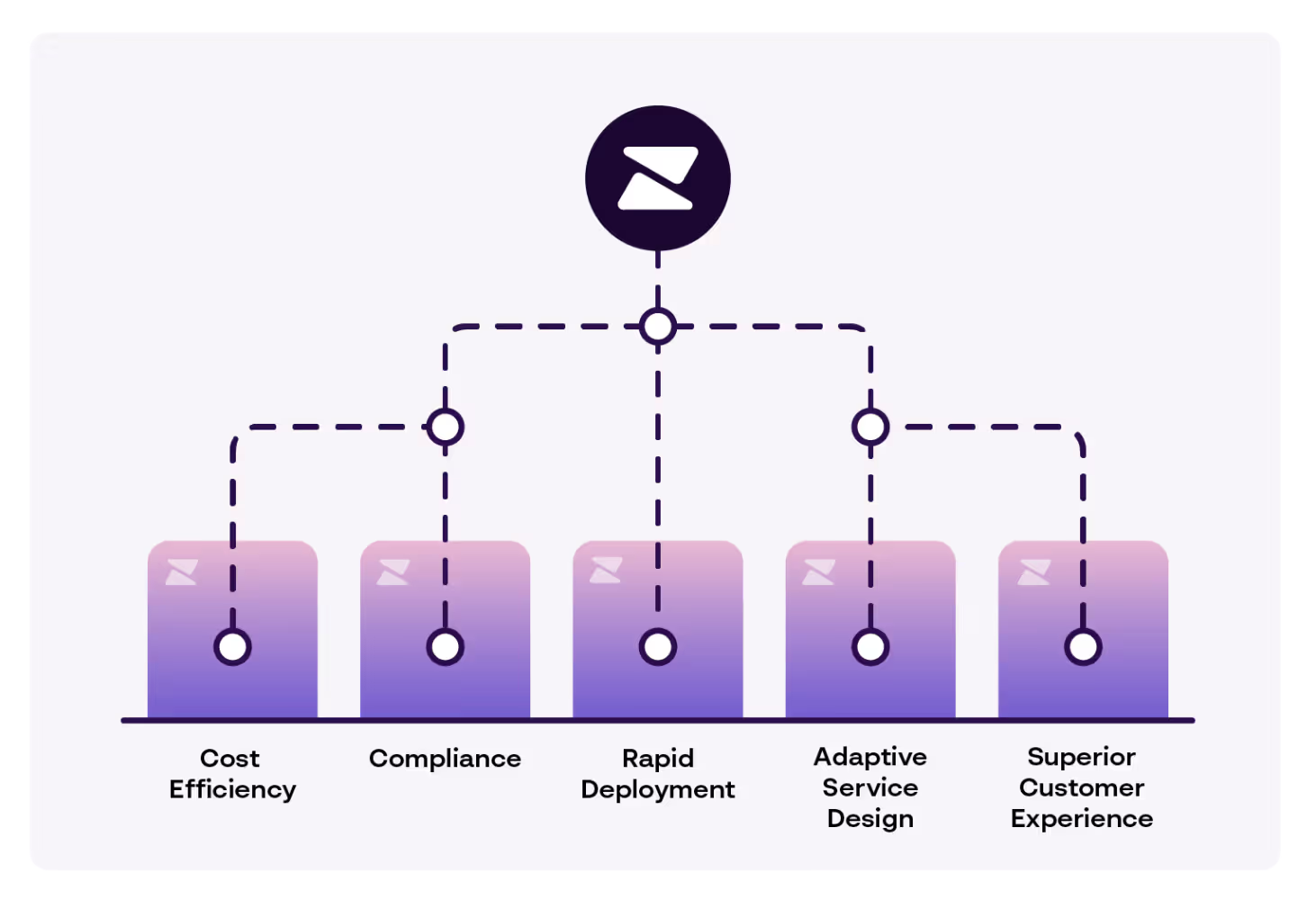
Enterprise Solutions for Shuttle-Based Employee Transportation
A new breed of companies has emerged in recent years to help businesses tackle the challenges of procuring and managing shuttle-based employee transportation programs. One such company is Zeelo, which provides an enterprise-grade service solution. Founded in London in 2016, Zeelo specializes in offering bespoke employee transportation solutions for businesses of all sizes.
Zeelo's approach to employee transportation is centered around a fully managed service that takes care of all aspects of the shuttle-based transportation program. From data-driven sourcing and vetting high-quality bus operators to designing optimal service network layouts and implementing state-of-the-art management and monitoring systems, Zeelo offers end-to-end transportation solutions that are tailored to the specific needs of each client, ranging from operating a single-site program to managing a national network of services.
Zeelo effectively addresses all constituents' requirements - cost-effectiveness and compliance for procurement departments, rapid deployment and adaptive service design for local business and facility teams, and a superior employee experience with real-time tracking, booking, and fare collection functionality.
By providing a comprehensive, fully managed transportation solution, Zeelo allows companies to focus on their core business operations while still achieving the benefits of shuttle-based employee transportation programs. Whether it's improving employee satisfaction and retention, reducing carbon emissions and air pollution, or meeting broader sustainability and social responsibility objectives, Zeelo offers a turnkey solution that simplifies the procurement and management process and delivers results.
Get in touch with us if you would like to chat more about what Zeelo can do for your business
We help companies and schools achieve their transportation program goals
Corporate shuttles


Warehouse/Distribution


Schools & Universities


Become a partner


Want to know how we can help you?









